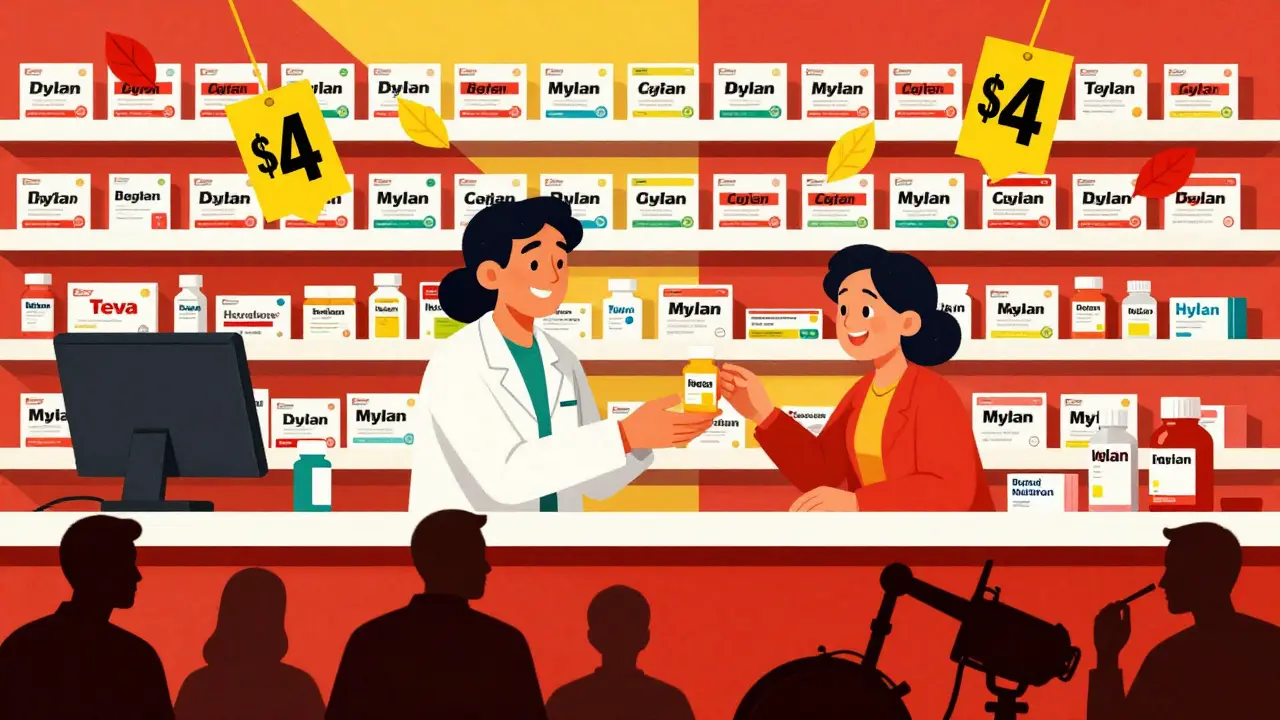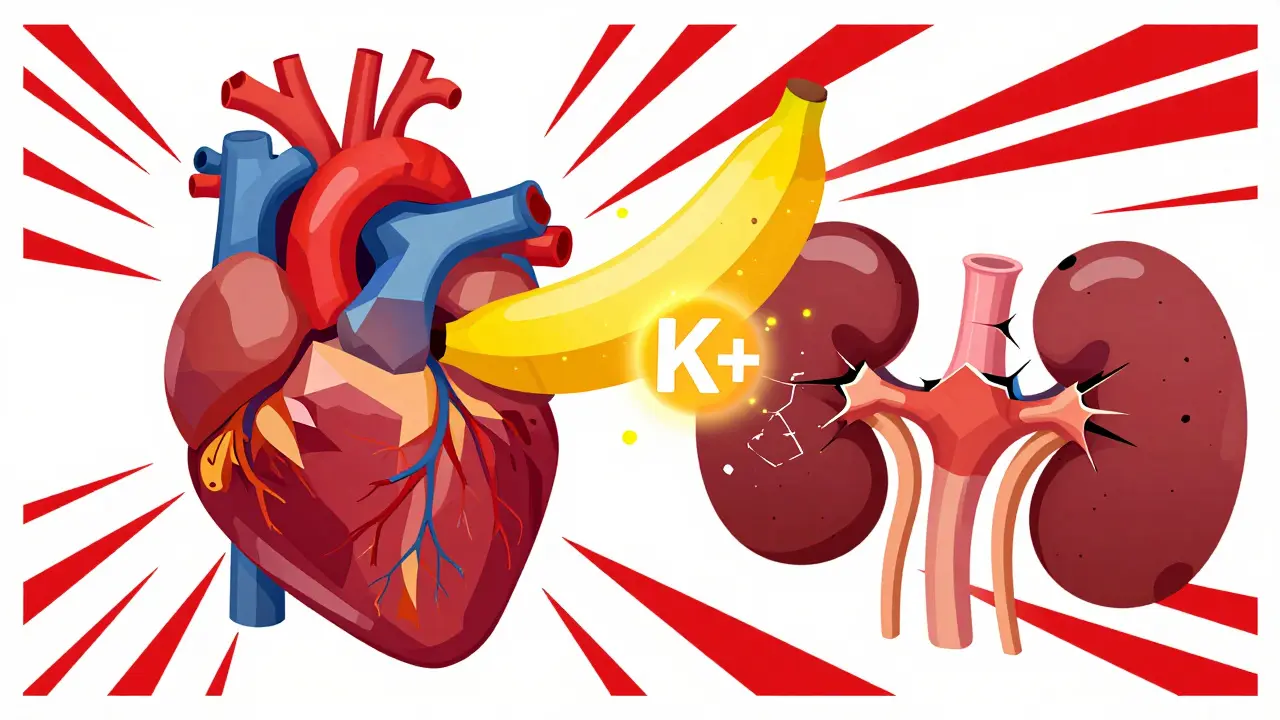Quick Takeaways
- Meclizine is an antihistamine best for long‑lasting relief of motion‑induced vertigo.
- Dimenhydrinate works faster but may cause more drowsiness.
- Scopolamine offers the strongest anti‑nausea effect for sea travel but can cause dry mouth and blurred vision.
- Promethazine and diphenhydramine are versatile but often sedate heavily.
- Betahistine targets inner‑ear fluid balance, making it useful for vestibular migraine‑related dizziness.
When you’re stuck on a boat, in a car, or dealing with inner‑ear vertigo, choosing the right medication can feel like a gamble. Meclizine is a first‑generation antihistamine that blocks H1 receptors and has anticholinergic properties, providing relief from motion‑induced nausea and dizziness for up to 24hours. It’s available over the counter in many countries and is often the go‑to option for travelers and patients with vestibular disorders.
But Meclizine isn’t the only player on the field. Several other drugs-some prescription, some OTC-promise similar or even stronger effects, each with its own trade‑offs. This guide lines up Meclizine against the most common alternatives, helping you decide which fits your lifestyle, health profile, and travel plans.
How Meclizine Works and Who It Helps Most
Meclizine blocks histamine’s action in the brain’s vestibular centers, dampening the signal that tells you you’re moving when you’re not. Its anticholinergic bite also reduces the sneeze‑like reflex that triggers nausea. Because it has a relatively long half‑life (about 6hours) and is slowly released from tissues, a single dose can cover an entire day of travel.
Typical uses include:
- Motion sickness on cars, planes, and ships.
- Vertigo caused by benign paroxysmal positional vertigo (BPPV) or Ménière’s disease.
- Post‑operative nausea where a gentle, non‑sedating option is preferred.
Key Alternatives at a Glance
| Drug | Class | Typical Dose | Onset | Duration | Common Side Effects | Prescription/OTC |
|---|---|---|---|---|---|---|
| Meclizine | Antihistamine (H1 blocker) | 25‑50mg once daily | 30‑60min | 12‑24h | Drowsiness, dry mouth | OTC (U.S.) / Prescription (AU) |
| Dimenhydrinate | Antihistamine (H1 blocker) | 50‑100mg 30min before travel | 15‑30min | 4‑6h | Strong drowsiness, blurred vision | OTC |
| Scopolamine | Anticholinergic | 1.5mg transdermal patch (12h before travel) | 1‑2h | 72h (patch) | Dry mouth, dizziness, blurred vision | Prescription |
| Promethazine | Antihistamine/Antiemetic | 25‑50mg 30min before travel | 30‑60min | 4‑6h | Heavy sedation, constipation | Prescription |
| Diphenhydramine | Antihistamine (H1 blocker) | 25‑50mg 30min before travel | 15‑30min | 4‑6h | Intense drowsiness, dry mouth | OTC |
| Betahistine | Histamine‑like agonist | 8‑16mg three times daily | 1‑2h | 12‑24h (with repeated dosing) | Headache, nausea (rare) | Prescription (EU, AU) / OTC (some regions) |
Deep Dive into Each Alternative
Dimenhydrinate (Dramamine)
Dimenhydrinate is essentially Meclizine’s older cousin, combining diphenhydramine with 8‑chlorotheophylline to reduce sedation. It hits fast-often within 15minutes-making it a favorite for short trips or amusement‑park rides. The trade‑off is a higher chance of feeling “zombie‑like” after a few doses. If you need a quick, one‑off fix and can tolerate drowsiness, it’s a solid pick.
Scopolamine
Scopolamine’s strength lies in its anticholinergic action, which blocks the vestibular signals that cause nausea. The transdermal patch delivers a steady dose for up to three days, ideal for long cruises or multi‑day road trips. However, its dry‑mouth side effect can be uncomfortable, and some users report blurred vision. It’s prescription‑only in most markets, so a doctor’s note is required.
Promethazine (Phenergan)
Promethazine is a heavyweight antihistamine that also blocks dopamine receptors, giving it strong anti‑emetic power. It’s often used in clinical settings for severe nausea, such as chemotherapy‑induced vomiting. The downside? Sedation can be so intense that you’ll need a friend to drive you home. It’s best saved for situations where nausea is extreme and other options have failed.
Diphenhydramine (Benadryl)
Diphenhydramine is a go‑to household antihistamine. Its rapid onset (15‑30minutes) and OTC availability make it convenient, but the drowsiness quotient is high-sometimes enough to impair driving. Some travelers use it just before bedtime to avoid motion sickness during sleep, then rely on a lighter drug for daytime activities.
Betahistine
Betahistine works differently; it’s a histamine‑like agonist that improves blood flow in the inner ear, easing vertigo linked to Ménière’s disease. It doesn’t block nausea directly, so it’s not the best for classic motion sickness. However, for chronic vertigo sufferers, especially those who experience attacks after travel, it can complement an antihistamine regimen.
Choosing the Right Drug: Decision Checklist
- Travel length: Short trips (<4h) → Dimenhydrinate or Diphenhydramine. Long trips (>12h) → Meclizine or Scopolamine patch.
- Need for alertness: If you must stay awake (e.g., driving) → Meclizine (lowest sedation) or low‑dose Betahistine.
- Medical conditions: Glaucoma, enlarged prostate, or severe asthma → avoid strong anticholinergics like Scopolamine and Promethazine.
- Age: Children under 12 should not use many of these without pediatric guidance; Meclizine dose must be age‑adjusted.
- Prescription access: If you can’t get a prescription, stick with OTC options (Meclizine, Dimenhydrinate, Diphenhydramine).
Common Pitfalls and How to Avoid Them
Even the right drug can backfire if you misuse it. Here are a few traps and the fixes:
- Taking the dose too early or too late. Antihistamines need a 30‑minute window before motion starts. Set a reminder on your phone.
- Mixing sedating antihistamines with alcohol. The combo can amplify drowsiness and impair coordination. Keep drinks alcohol‑free when you’ve taken a dose.
- Ignoring medical warnings. People with heart disease or severe hypertension should consult a doctor before using Scopolamine or high‑dose antihistamines.
- Relying on one drug for chronic vertigo. Consider adding a vestibular rehab program or a low‑dose Betahistine to address underlying inner‑ear issues.

Quick Reference Cheat Sheet
- Fastest onset: Diphenhydramine (15min)
- Longest duration: Scopolamine patch (72h)
- Least drowsy: Meclizine (low‑sedation profile)
- Best for severe nausea: Promethazine
- Best for inner‑ear vertigo: Betahistine
Next Steps
Pick the drug that matches your travel plan, health status, and need for alertness. Start with the lowest effective dose, and give yourself a half‑hour to feel the effect before you board. If you notice excessive drowsiness, switch to a lower‑sedating option like Meclizine or try a non‑drug approach-like ginger candy or acupressure bands.
Still unsure? Talk to your pharmacist or primary‑care doctor. They can help tailor the dose, check for drug interactions, and suggest a backup plan if the first choice doesn’t work.
Frequently Asked Questions
Can I take Meclizine and alcohol together?
Mixing alcohol with Meclizine can increase drowsiness and slow reaction time. If you plan to drink, wait at least 24hours after the dose or choose a non‑sedating alternative.
Is Scopolamine safe for pregnant women?
Scopolamine is classified as Category C in the U.S., meaning risk cannot be ruled out. Pregnant women should consult a healthcare provider before using it.
How does Betahistine differ from antihistamines?
Betahistine is a histamine‑like agonist, not an antagonist. It improves inner‑ear blood flow rather than blocking histamine receptors, making it useful for chronic vertigo but less effective for short‑term motion sickness.
What’s the safest option for children?
For kids over 12, a low dose of Meclizine (12.5mg) or Dimenhydrinate can be used, but always follow pediatric dosing guidelines and check with a pediatrician first.
Can I use more than one of these drugs together?
Combining two antihistamines usually amplifies side effects without adding benefit. A common safe combo is a low‑dose antihistamine with an anti‑emetic like ondansetron, but only under medical supervision.







Jeremy Wessel
October 15, 2025 AT 18:54Meclizine is a solid daily option for most travelers; it lasts long and isn’t too sleepy.
Laura Barney
October 27, 2025 AT 07:53Honestly, if you’re hopping on a quick road trip, the fast onset of diphenhydramine can be a lifesaver, but brace yourself for the zombie‑like haze that follows. For longer voyages, the me‑cliz‑ine vibe is smoother; you stay alert enough to enjoy the scenery without nodding off. I love the fact that it’s affordable and widely available, so you don’t have to hunt down a prescription. Just remember to take it about 30 minutes before you start moving, otherwise it’s like bringing a parachute to a swim meet. Bottom line: choose based on how awake you need to be and how long you’ll be on the move.
John Magnus
November 7, 2025 AT 21:56From a pharmacodynamics standpoint, Meclizine’s H1 antagonism coupled with its anticholinergic profile yields a prolonged therapeutic window that outperforms many first‑line agents. The drug’s half‑life of roughly six hours ensures steady plasma concentrations, mitigating the trough‑related breakthrough nausea observed with agents like Dimenhydrinate. Moreover, its peripheral sedation is attenuated due to limited blood‑brain barrier penetration, which is a key differentiator for operators requiring sustained vigilance. Clinicians should also note the negligible impact on cytochrome P450 isoforms, reducing the risk of drug‑drug interactions in polypharmacy scenarios. In short, for patients with contraindications to intense anticholinergics, Meclizine is a rational, evidence‑based alternative.
Marc Clarke
November 19, 2025 AT 12:00Just a heads‑up: I’ve tried the scopolamine patch on a three‑day cruise and the dry mouth was brutal, but the nausea never showed up. If you can handle the mild blur and keep water handy, the patch is a set‑and‑forget solution that beats popping pills every few hours.
angelica maria villadiego españa
December 1, 2025 AT 02:03I totally get the anxiety around trying a new anti‑motion med, especially if you have a busy schedule. Meclizine’s low‑sedation profile makes it a friendly choice for anyone who needs to stay sharp while traveling. Just take it about half an hour before you start moving and you’ll likely feel the difference.
Angelina Wong
December 12, 2025 AT 16:06Great point! A low dose works well for short trips and doesn’t leave you groggy for the rest of the day.
Anthony Burchell
December 24, 2025 AT 06:10Here’s a twist: if you’re scared of the drowsy side‑effects, skip both Meclizine and Dimenhydrinate and go straight for the Scopolamine patch-just be ready for the dry‑mouth marathon. It’s a trade‑off, but sometimes you need the strongest anti‑nausea shield regardless of inconvenience.
Michelle Thibodeau
January 4, 2026 AT 20:13Traveling by sea or sky can feel like stepping into a moving labyrinth where the inner ear sends mixed signals to the brain, and the choice of medication becomes a pivotal ally in navigating that disorienting maze. When I first started exploring the world, I relied heavily on over‑the‑counter Dimenhydrinate because its rapid onset meant I could take it right before boarding a roller‑coaster‑like flight and feel immediate relief. However, the lingering fog of drowsiness made grocery shopping after landing a hazy affair, prompting me to research alternatives that would keep my mind clear while still taming the queasy tides. Meclizine emerged as a contender with its 12‑ to 24‑hour coverage, offering a sweet spot of prolonged calm without the deep sedation of its older cousin.
Yet, the story does not end there. On a month‑long river cruise through the Mekong, I experimented with a Scopolamine transdermal patch. The patch adhered like a silent guardian, delivering a steady dose that lasted three days, sparing me the inconvenience of multiple pills. The downside, however, was a relentless dry mouth that made my tongue feel like sandpaper, and occasional blurred vision that required me to readjust my eyeglasses constantly. For those with sensitive eyes or pre‑existing glaucoma, this may be an unacceptable compromise.
The next chapter introduced me to Betahistine, a drug that doesn’t block nausea per se but improves inner‑ear blood flow. Used primarily for Ménière’s disease, it proved beneficial during a trek across high‑altitude passes where pressure changes triggered vertigo spells. Although it didn’t abolish motion‑induced nausea, it reduced the intensity of vertigo episodes, allowing me to continue my ascent without the debilitating spinning sensation.
Through trial and error, I learned that the “best” medication is highly situational. For short, intense bouts of motion-like a five‑hour flight-Dimenhydrinate’s quick kick‑in is advantageous despite its drowsiness. For extended voyages where staying alert is crucial-like a cross‑country road trip-Meclizine’s low‑sedation profile shines. When the journey spans several days, a Scopolamine patch becomes the most practical, provided you can tolerate its anticholinergic side effects.
Moreover, individual health conditions act as gatekeepers. Patients with prostate hypertrophy, narrow‑angle glaucoma, or severe asthma should steer clear of strong anticholinergics like Scopolamine and Promethazine, as they can exacerbate underlying issues. In such cases, a lower‑dose Meclizine or even non‑pharmacologic measures-ginger chews, acupressure bands, or vestibular rehabilitation exercises-might be safer.
In the end, the decision matrix involves travel length, need for mental clarity, personal health profile, and medication accessibility. Consulting a pharmacist or physician before embarking can tailor the regimen to your unique circumstances, ensuring that the only thing you have to worry about on your adventure is the destination, not the queasiness.
Patrick Fithen
January 16, 2026 AT 10:16Life is a series of choices and meds are no different each option carries weight and consequence you must weigh them carefully and find balance between relief and side effects the journey matters more than the destination
Jagdish Kumar
January 28, 2026 AT 00:20One must appreciate the nuanced choreography of pharmacologic agents; the elegant symphony of histamine antagonism versus anticholinergic potency is not merely a clinical footnote but a testament to human ingenuity in combating the capriciousness of motion‑induced malaise.
Tom Saa
February 8, 2026 AT 14:23While the eloquence of that statement is commendable, let us not forget that practicality often trumps poetry when a traveler simply needs a clear head and an uneventful stomach.
Jessica H.
February 20, 2026 AT 04:26In summary, each anti‑motion agent presents a distinct risk‑benefit profile that warrants individualized consideration.